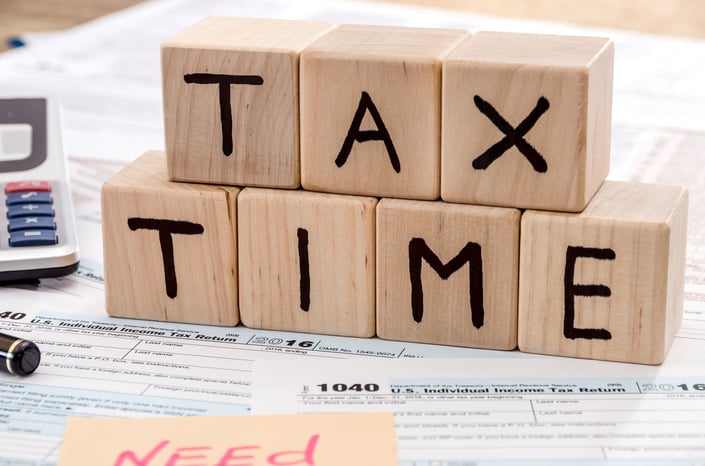Plan for Your Taxes Ahead of Time
The IRS does not accept tax returns until mid to late January, but there is no time like the present to start planning for your taxes and be that much closer to a possible tax refund.

Get Organized
Doing your taxes may feel overwhelming, but a little organization may ease the stress around tax season. There may be many tax forms you might have to manage plus potentially different sources of income, charitable donations, student loan interest payments, and even personal and business deductions. It can be easy to lose track of it all unless you are well organized. The following steps may help you in organizing your tax documents:
- Pull out last year’s tax return and make a list of all the forms and documents you might need. As those documents start to come in at the beginning of the new year, you can check them off and keep an eye for those still needed. Also, The IRS has a tax preparation checklist on its website, http://www.irs.com/articles/tax-preparation-checklist, which may remind you of things you might have forgotten, such as property loss, mortgage interest, and charitable contribution records.
- Create a file folder labeled “Taxes” with the current tax year. Put any important documents including income, charitable donations, tax statements, property information, etc. into this folder throughout the year. Having all relevant materials in one place may eliminate the stress of trying to find the documents at the last minute. It is recommended that you write the last tax filing day on the outside of the folder as a reminder.
- Collect your last paycheck stub and put it in the Taxes folder so you can verify your W-2 form once you receive it.
The federal government estimates that about 60% of individuals use paid preparers to complete and submit their tax returns.[1] Regardless if you use a tax preparer or are one of the 40% who complete your own taxes, there are a few things you need to do to get ready for filing your returns.
By the end of January, you should have received all the necessary tax documentation that you need from your employer(s), as well as from banks, brokerage firms, and others with whom you do business. For each form, check that the information matches your own records.
These are some of the most common forms:
- Form W-2, if you were an employee.
- The various 1099 forms that report other income you received, such as dividends (1099-DIV), interest (1099-INT), and non-employee compensation paid to independent contractors (1099-MISC). Brokers are not required to mail Form 1099-B, which reports gains and losses on securities transactions, until January 31, so those may come a little later.
- Form 1098, if you paid any mortgage interest.
- Form W-2G, if you had certain gambling winnings.
Organize your receipts
Depending on whether you itemize your deductions or claim the standard deduction, you may need to gather and organize some receipts. You'll want to choose the deduction that produces the greater write-off, but the only way to know for sure is to add up your itemized deductions and compare the total sum with your standard deduction. For example, for tax year 2019, the standard deduction for single taxpayers is $12,200 and for married couples filing jointly is $24,400.[2]
Schedule Tax Preparation Time into Your Calendar
Scheduling tax preparation into your calendar ensures you’ll have the time to work on your taxes. Don’t wait until the last-minute to try to plan your tax preparation into an already busy schedule. Planning ahead could help alleviate a potential stressful time of the year.
The Bottom Line
Whether you do your own taxes or hire someone else to handle it, keeping good records will save you time and, in the case of a paid preparer, money. The earlier you start, the more smoothly it should go, and the sooner you'll have put the process behind you for another year.
Taxes can be complicated. The right financial advisor can help you optimize tax strategies and achieve your financial goals. We are not tax experts and suggest you contact a tax advisor to ensure your tax forms are correctly completed.
[1] https://www.investopedia.com/articles/pf/07/tax_prep.asp
[2] For more information about the standard deductions for tax year 2019, please refer to: https://www.irs.gov/newsroom/irs-provides-tax-inflation-adjustments-for-tax-year-2019







.png?width=144&height=134&name=2019_PCI_Logo_Footer_10_16_19%20(002).png)
